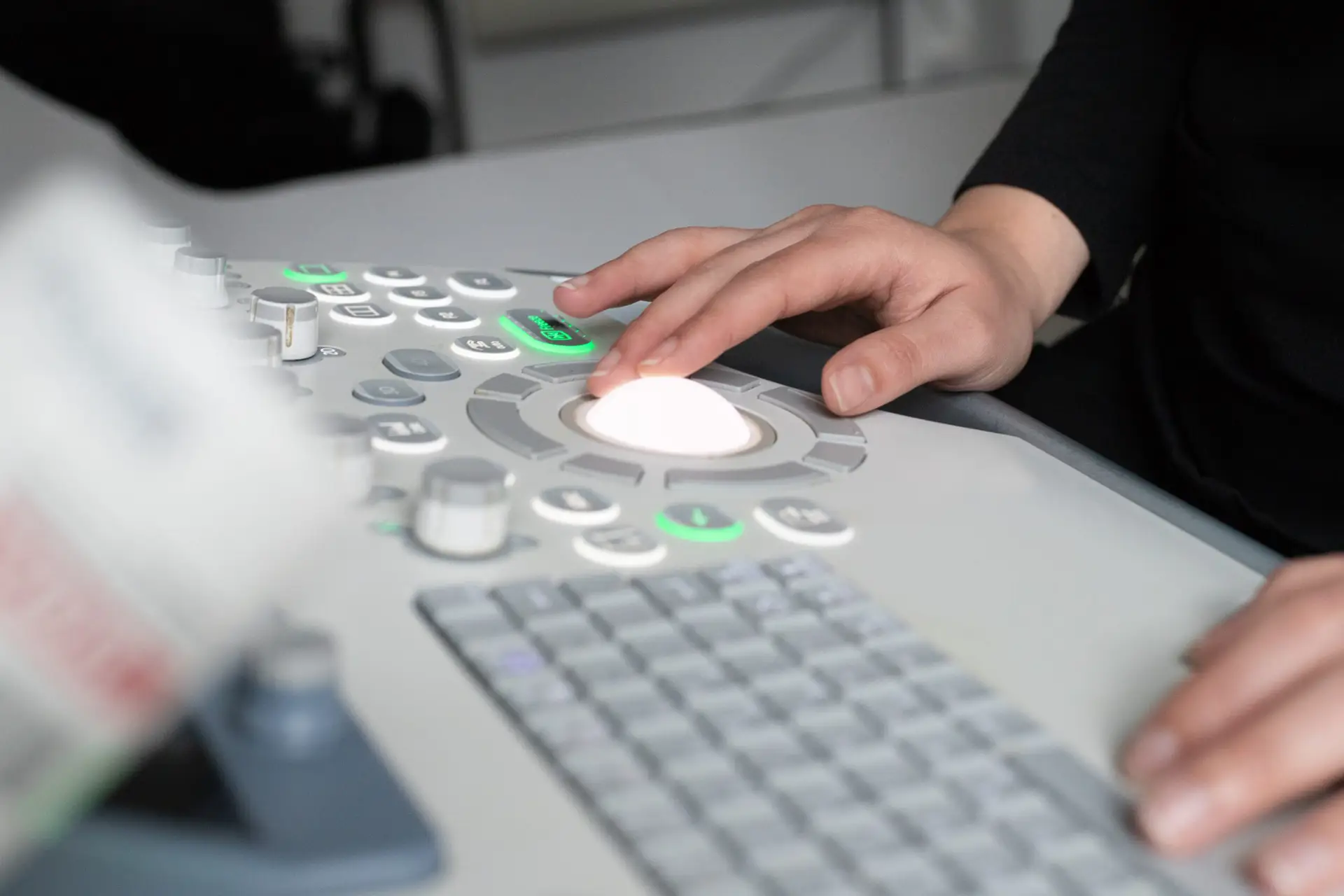
Rebecca Falnes
Senior Sonographer
Sometimes figuring out your due date can be confusing. There are several variables that can affect your dates, and everyone’s body is different and won’t necessarily follow a “normal” cycle. Here we will go over the best way to determine your due date and what it is based on.
Last Menstrual Period (LMP)
The first thing your doctor, midwife, or sonographer will ask you is when the first day of your last period was. We always go by the day your period started as the first way to determine your due date.
A “normal” menstrual cycle is defined as lasting 28 days with ovulation occurring on the 14th day. This means there is approximately 28 days between when one period starts and when the next period starts and ovulation occurs right in the middle. However, it can also be normal for cycles to be anywhere from 21 to 40 days in length. Having a longer or shorter cycle can also change the timing of your ovulation, which is when conception actually occurs.
If your periods are regular, this is considered the best way to date your pregnancy. While we do our best to define a normal standard, not everyone’s body will fit into that. And if your periods are irregular, then using your LMP date is less likely to be accurate.
Your First Positive Pregnancy Test
Pregnancy tests have become more accurate and are now able to detect pregnancy sooner and sooner. Most give a simple yes or no answer if you’re pregnant or not, but some even tell you approximately how far along you are. The earliest a test can confirm pregnancy is one week before your missed period. That means it can tell you’re pregnant just 1 week after conception! This counts as being 3 weeks pregnant, but your baby has only been forming for 1 week.
Ultrasound Scan
An ultrasound can also determine your due date. In the first trimester, the sonographer will measure the size of your baby from the top of its head down to its bum; this is called the “crown-rump length” and is the most accurate measurement for determining how far along you are.
We know you are excited and can’t wait to see pictures of your baby on an ultrasound, but you need a little bit of patience. At 5 weeks your baby will be smaller than a poppy seed and too small to see on ultrasound. At 6 weeks your baby is the size of a sesame seed – this is the very earliest that it can be seen on ultrasound, but it may still be too early to see the heartbeat. By 7 weeks your baby is about the size of a grain of rice and the heartbeat should be visible at this stage. Scheduling an ultrasound too early and not being able to see your baby or the heartbeat can cause unnecessary anxiety. Your baby just needs time to grow!
In the second and third trimester the most accurate measurement to determine the due date is the length of the femur bone in the thigh. We also measure the head and abdomen, but those measurements are more accurate in determining your baby’s weight and not the due date.
Your Due Date Keeps Changing
Your baby will come when it is ready and your due date is our best estimate of when your baby should make its first appearance to the world. Having a due date can help you prepare and it’s also important for tracking your baby’s growth throughout the pregnancy.
Your due date should be established early in your pregnancy and should not change. The most accurate time to determine your due date is between 8-10 weeks with an ultrasound scan. This can determine if your LMP date is accurate or if it needs to be adjusted. If you are past 8-10 weeks that’s okay, you should use the due date from the earliest pregnancy scan that you had.
Each time you get an ultrasound scan there’s a little leeway with the dates. A lot can depend on your baby’s position and how well we see what we’re measuring, as well as the experience of the sonographer doing your scan. In the first trimester the ultrasound measurements are accurate within a few days, second trimester measurements should be within a week, and in the third trimester dates can vary by as much as two weeks. This is because the further along you are the more variation there is in the size of babies.
If your ultrasound report has a different due date that does not necessarily mean you should change your dates. Keep the first date you were given unless you have been specifically told it needs to change and it differs by more than a week. A few days in either direction is not enough to change your due date. A consistent due date helps the sonographer track your baby’s growth and development.
Do you have a pregnancy or ultrasound related question? Chances are someone else is wondering the same thing. Send us your questions and we may write a blog to help answer it! Questions can be sent to info@theultrasoundsuite.ie
